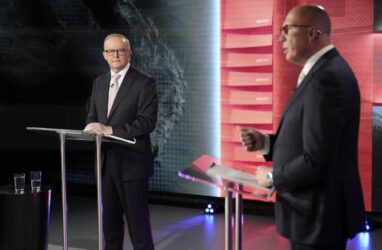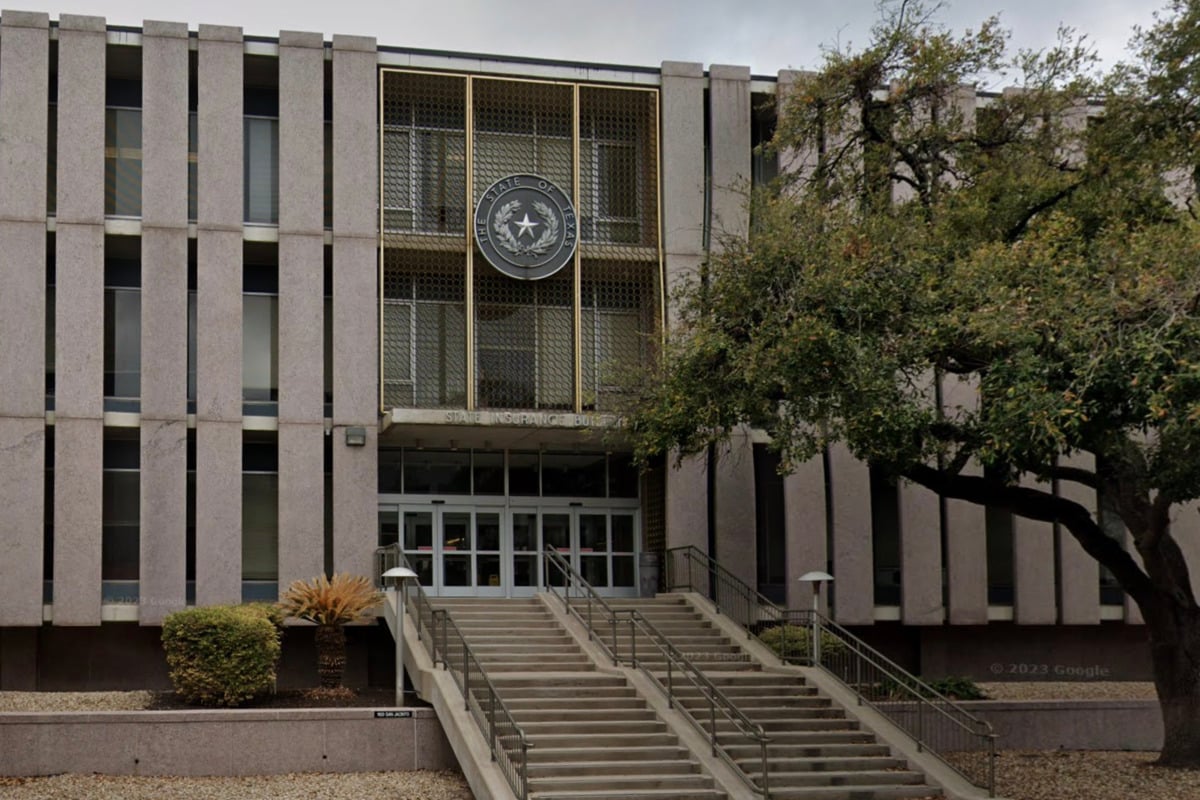In a campaign where Coaltion leader Peter Dutton’s fate seems tied to his closeness to broadly hated figures like Donald Trump and Tony Abbott, it is weird and confusing that at every single possible opportunity Dutton seems to actively double and triple down on those connections. On Wednesday, in the second leaders’ debate, Dutton decided to throw out a statement that there isn’t enough information to say for sure whether or not the burning of fossil fuels is impacting extreme weather events in Australia. He cited recent in Thargomindah in Queensland as an example of where increasingly severity and frequency of wild disasters can be shrugged off as a .
“I don’t know, David (moderator David Spiers) because I’m not a scientist and I can’t tell you whether the temperature has risen in Thargomindah as a result of climate change or that the water levels are up in Thargomindah’s latest flood as a result of climate change,” Dutton said. “I think the honest answer for most people is that they don’t know and there are scientists who can provide advice”. Just so it’s absolutely clear here: The temperatures in Thargomindah have absolutely risen due primarily to the impact of coal, oil and gas on Earth’s atmosphere (along with large-scale agriculture and the destruction of vegetation).

The Copernicus ERA5 explorer shows for the region and it’s pretty blatant: Rainfall, floods and storms are notably more complex phenomena and so it’s tougher to create a nice chart of the signal without the noise. But there is that a hotter atmosphere results in a warmer and wetter atmosphere, filled with much more energy and dumping greater volumes of water when it does storm. While Dutton discarded this science, prime minister Anthony Albanese welcomed it: “It doesn’t mean that every single weather event is because of climate change.
It does mean that the science told us that the events would be more extreme and they’d be more frequent and that is what we are seeing playing out, whether it be increased bushfires, increased flooding, these extreme weather events that are having an impact. “So when we talk about the costs, this is one of the costs. The cost to our economy as well as the cost to our environment of not acting on climate change, of not being a part of the global solution are severe” Labor leans on this a lot – presenting themselves as ‘accepting the science’.
As I wrote here , Labor are happy to declare the science as ‘true’ but rarely happy to follow through on the basic moral conclusions from accepting it as true. Admitting that fossil fuels heat the Earth is one thing; acting like that’s a bad thing that should be urgently prevented is something else entirely. Labor’s climate policy suite is largely a non-interventionist, corporate-friendly package of incentives that shun regulation or enforcement and will only bring about emissions reductions where no convincing of the public or active fighting for change is required.
That is wildly insufficient. Why should we celebrate Labor ‘accepting the science’ when it doesn’t change their behaviour? It was an unusual moment. Climate change itself has barely featured in the election campaign so far, and in Australian media coverage over the past five years.
Usually, an election will cause a noticeable spike in mentions of climate or global warming, but this election will almost certainly be the first to not cause that effect in the dataset tracking mentions. It came and went in seconds but it was a brief reminder that this isn’t about “the science”, or about fluctuations in $/KWh, or the number of milliseconds of blackouts per year. It is about saving lives and protecting our habitat.
Most coverage of Thargomindah’s floods either don’t mention fossil fuels at all, or bury a mention of climate change deep in the back of an article. It is no surprise that any connective tissue between these issues remains completely non-existent, and both of these leaders feel no pressure to present a real case to win re-election..
Environment

Dutton brings back old-school climate denial in second leaders debate

Peter Dutton weirdly brings back a little moment of old-school climate denial - but does Anthony Albanese really 'accept the science'? The post Dutton brings back old-school climate denial in second leaders debate appeared first on RenewEconomy.















